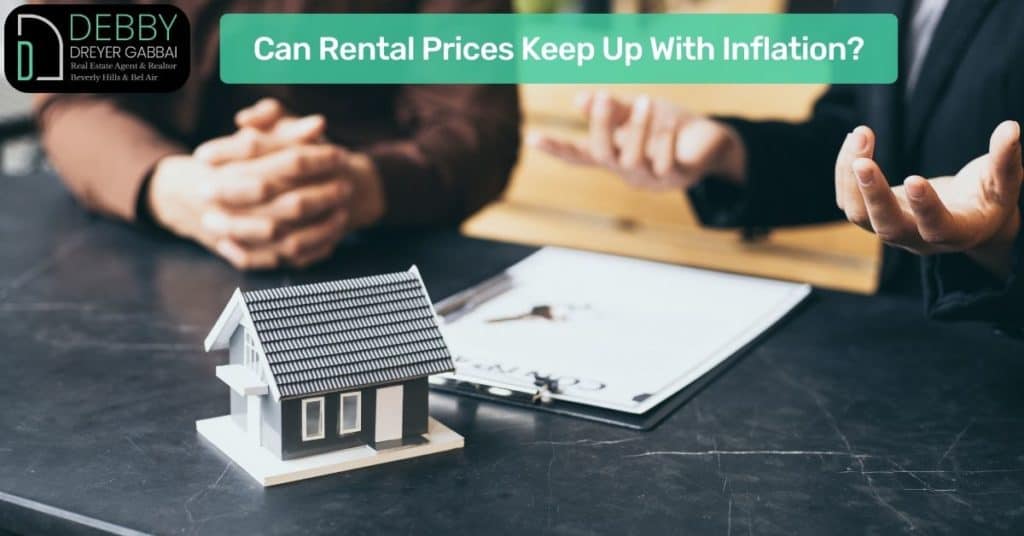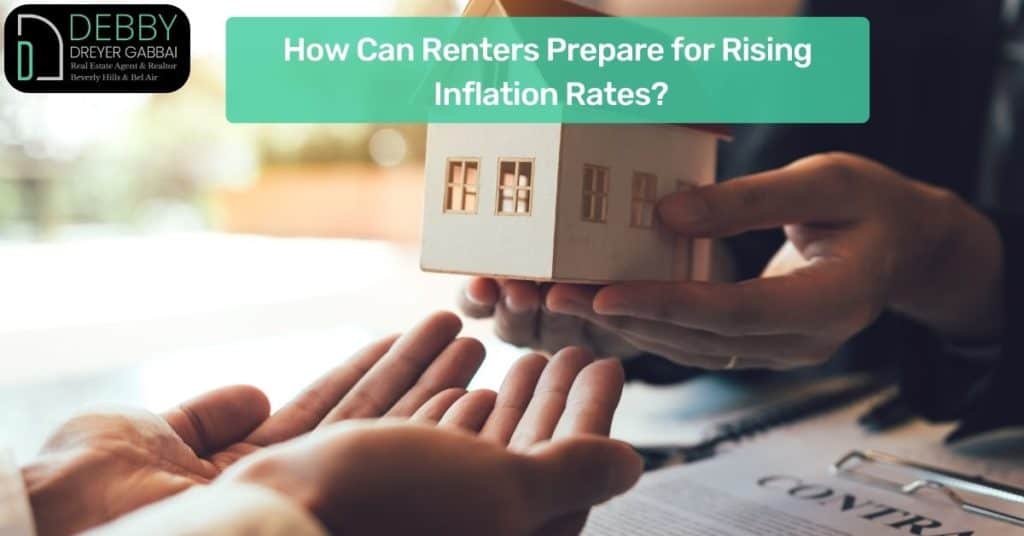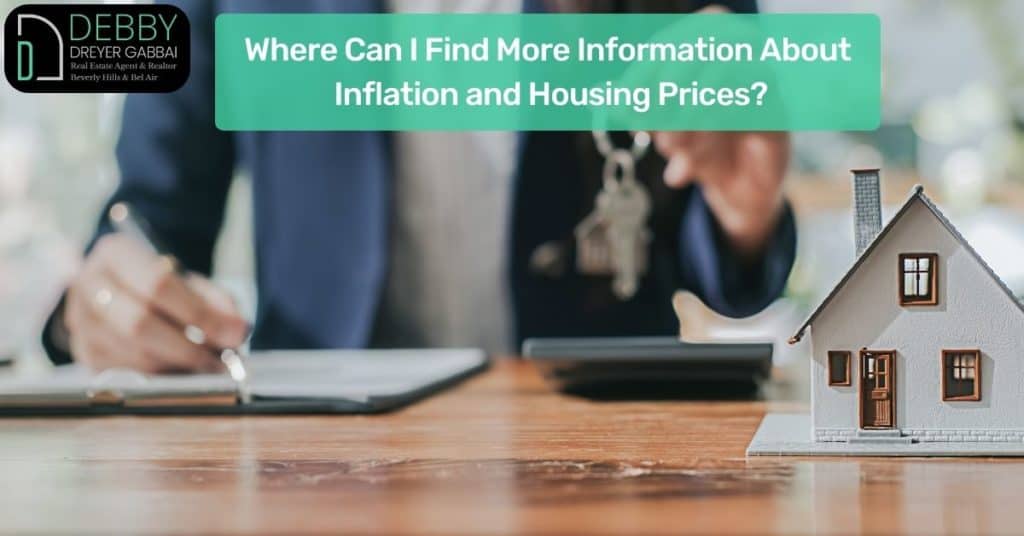There’s no denying that inflation is one of the most important economic concepts out there. After all, it’s what helps drive our economy forward. But what does it mean for housing prices? In this blog post, we’ll explore how inflation affects house prices, and what homebuyers, sellers, and renters need to know.
1. What Is Inflation and How Does It Affect House Prices?
Inflation is the gradual rise in the prices of goods and services. It occurs when the money supply in an economy grows faster than the output of goods and services. The result is higher prices for items relative to wages, which means that consumers have less purchasing power.
Inflation can have a number of effects on the housing market. For example, it can make mortgages more expensive, as lenders will require a higher rate of interest to cover their increased costs. In addition, inflation can reduce the value of deposits, making it more difficult to save for a deposit on a property.
As a result, purchasers who are stretched financially may be forced to postpone their plans to buy a property. Conversely, inflation may encourage some investors to purchase property, as they anticipate that prices will continue to rise.
This increased demand may put upward pressure on prices and lead to further inflation. Ultimately, the effect of inflation on house prices will depend on a number of factors, including economic conditions and interest rates.

2. How Can Homebuyers and Sellers Protect Themselves From Inflation?
Inflation is often thought of as a rise in the prices of goods and services. While this is technically true, inflation is actually a broader phenomenon that can impact both homebuyers and sellers.
Inflationary pressure can lead to higher interest rates, which can in turn drive mortgage payments and make it more difficult for buyers to qualify for loans. At the same time, rising prices can also increase the value of homes, providing a windfall for sellers.
However, inflation can also lead to lower incomes and higher living costs, which can offset any gains from selling a home. As a result, it is important for both buyers and sellers to be aware of the potential risks posed by inflation.
There are a number of ways to protect oneself from inflationary pressures, including diversifying one’s investments and hedging against rising interest rates. By taking steps to safeguard their finances, buyers and sellers can minimize the impact of inflation on their ability to buy or sell a home.

3. What Impact Will Inflation Have on Renters?
The short answer is that it will have an impact, but we don’t know how big of an impact yet. In general, inflation is defined as when the prices of goods and services rise over time.
So, if inflation goes up, that means the cost of living increases as well. According to landlords and property managers, they typically increase rent anywhere from 3-5% each year to account for the rising cost of living and operating expenses.
However, some experts are projecting that inflation could rise to as high as 8% this year. That would mean that rents could potentially increase by a few hundred dollars in just one year.
For people who are already struggling to make ends meet, this could cause them to fall behind on rent or even become homeless. While we don’t know exactly what will happen with inflation this year, it’s important for renters to be aware of the potential impact it could have on their finances.

4. Can Rental Prices Keep Up With Inflation?
Can rental prices keep up with inflation? It’s a question that’s been on the minds of many landlords and tenants lately. After all, with the cost of living rising, it’s only natural that rent would eventually follow suit.
Unfortunately, there is no easy answer to this question. While it is true that rental prices have historically been linked to inflation, there are a number of factors that can influence the rate at which rents increase.
For example, the strength of the economy and the availability of affordable housing are both important factors. In addition, landlords often have to contend with rising property taxes and insurance rates.
As a result, predicting the future of rental prices is no easy task. Nevertheless, it’s important to stay informed and be prepared for whatever the future may hold.

5. How Can Renters Prepare for Rising Inflation Rates?
As inflation rates rise, renters will feel the squeeze as their costs go up. Here are some tips on how to prepare for rising inflation rates:
Budget: Review your expenses and make sure you are prepared for increased costs. Look for ways to cut back on non-essentials.
Create a financial cushion: Try to save up extra money so you have a buffer when costs go up. This will help you avoid getting into debt.
Keep an eye on the market: Track inflation rates and be aware of how they may impact your rent prices. This way you can budget accordingly and make sure you are not caught off guard.
By following these tips, renters can prepare for rising inflation rates and ensure that they can continue to afford their housing costs.

6. What Other Factors Influence Inflation and Housing Prices?
There are a number of factors that can influence inflation and housing prices. One of the most important is the availability of credit. When credit is easy to obtain, buyers are more likely to purchase houses, and this increased demand can lead to higher prices.
Another important factor is the strength of the economy. When economic growth is strong, there is typically more demand for housing, and this can drive prices up. Additionally, inflation can have an impact on housing prices. As the cost of living goes up, so does the price of housing.
Finally, interest rates can also affect housing prices. When rates are low, buyers are more likely to purchase houses, as they can afford the monthly payments.
However, when rates rise, buyers may be less likely to purchase houses, as the monthly payments become more expensive. All of these factors can influence inflation and housing prices.

7. Is There Anything Else Homebuyers, Sellers, or Renters Should Know About Inflation?
Inflation is a measure of how much prices have increased over time. When inflation is high, it means that prices are rising faster than wages, which can make it difficult for people to afford basic necessities like housing.
Inflation can also impact housing prices in a number of ways. For example, if inflation is high, the cost of building materials and labor will also increase, which can lead to higher home prices. In addition, if people expect inflation to be high in the future, they may be more likely to buy a home now so that they can lock in today’s prices.
As a result, inflation can have a significant impact on housing prices, and it is something that both buyers and sellers should be aware of.

8. Where Can I Find More Information About Inflation and Housing Prices?
Looking to learn more about inflation and housing prices? Here’s everything you need to know. Inflation is defined as the increase in the cost of living over time.
This can be caused by a variety of factors, including an increase in the price of goods and services, or a decrease in the purchasing power of the currency. Housing prices are also affected by inflation, as the cost of building materials and land values increase over time.
In order to calculate inflation, economists use a measure called the consumer price index (CPI). The CPI tracks changes in the prices of a basket of goods and services that are typically purchased by households. By looking at changes in the CPI, economists can get a good idea of how inflation is affecting different parts of the economy.
So, what does all this mean for housing prices? Generally speaking, when inflation is high, housing prices will also rise. This is because it costs more to build a house when the price of building materials and land is increasing.
However, there can be exceptions to this rule. For example, if interest rates are rising at the same time as inflation, this can put pressure on housing affordability and actually lead to a decrease in prices.
So, if you’re looking to buy a house, it’s important to keep an eye on both inflation and interest rates. By doing so, you’ll be better equipped to predict how these factors might affect housing prices in the future.

In conclusion
Inflation can have a significant impact on housing prices. Homebuyers, sellers, and renters should all be aware of how inflation can affect the housing market and take it into consideration when making decisions. By understanding inflation and its effects on housing prices, you’ll be better equipped to make informed decisions about buying, selling, or renting a home.
